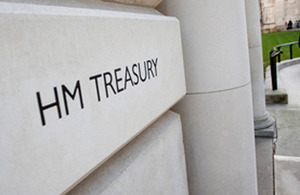New chancellor scraps almost all mini-budget tax cuts amid u-turn

The new Chancellor of the Exchequer, Jeremy Hunt, has announced the reversal of most of the tax cuts announced in the preceding chancellor’s ‘mini-budget’.
The measures which were scrapped include:
- Cutting the basic income tax rate by 1% to 19%
- A freeze on corporation tax at 19% - it will now rise to 25% in April 2023 as previously planned
- Removal of the top tax bracket of 45%
- 2-year energy support package - now only until April with a review underway to put in place alternative future support
- VAT-free shopping for non-UK visitors
- Freeze on alcohol duty rates
Mini-budget measures which will say in place include:
- No cap on bankers’ bonuses
- Reversal of the 1.25% rise in National Insurance
- No stamp duty on the first £250k of a property and the first £425k for first time buyers
Commenting on the reversal, Martin Beck, chief economic advisor to the EY ITEM Club, said: “This morning’s announcement means the tax-cutting mini-Budget has now been almost entirely reversed.
“After revealing on Friday that the cancellation of next April’s rise in the corporation tax rate would itself be cancelled, the new Chancellor has gone further, removing plans to reduce income tax (and putting any future cut into abeyance) and abandoning September’s smaller tax reductions. This leaves the cuts in NICs (at a fiscal cost of £13bn per year) and in stamp duty as the only parts of September’s initial £45bn of tax reductions which will go ahead.
“There was also action on the spending side. The Chancellor said discussions would take place on finding new “efficiency savings”, with more detail to be provided in the next fiscal event on 31 October. And the cap on energy bills will remain universal only until April, not October 2024 as originally planned. A Treasury review will present a more targeted form of support post-April.
“The fiscal savings from this are uncertain. If the recent fall in wholesale gas futures prices is maintained, the cost of the Energy Price Guarantee beyond six months would likely have been much less than initially projected. But if prices were to rise again, the Government may extend the life of the cap.
Mr Beck continued: “The market reaction to the Chancellor’s announcements was positive, with sterling strengthening and gilt yields falling across the curve – the latter particularly reassuring given the risk that the end of Bank of England intervention on Friday would result in a rise in yields.
“With the fiscal stance now set to be tighter than previously planned – the tax U-turns alone equating to a tightening of around 1.3% of GDP – and the risk premia on UK assets falling, the Bank of England will be under less pressure to take an aggressive approach to raising interest rates.
“Indeed, market expectations have already fallen back, with Bank Rate now predicted to peak at 5% next spring, down from 6% two weeks ago. This should translate into some reversal of the recent rise in mortgage rates and improve mortgage availability. The EY ITEM Club thinks investors’ expectations will continue to retreat, coming down closer to the EY ITEM Club’s forecast of a peak in Bank Rate of 4%.
He concluded: “All else equal, this is good news for the economic outlook. But the tax burden will now be higher than previously expected, putting more pressure on households experiencing high inflation and falling real incomes. Raising taxes and holding back public spending in an economy facing recession risks making the economy weaker.
“Overall, the EY ITEM Club still expects the economy to decline over the next few quarters, but the risk of a more severe downturn, driven by a continued loss of market confidence, has been reduced. However, further uncertainty can’t be ruled out, depending on how events unfold.”









